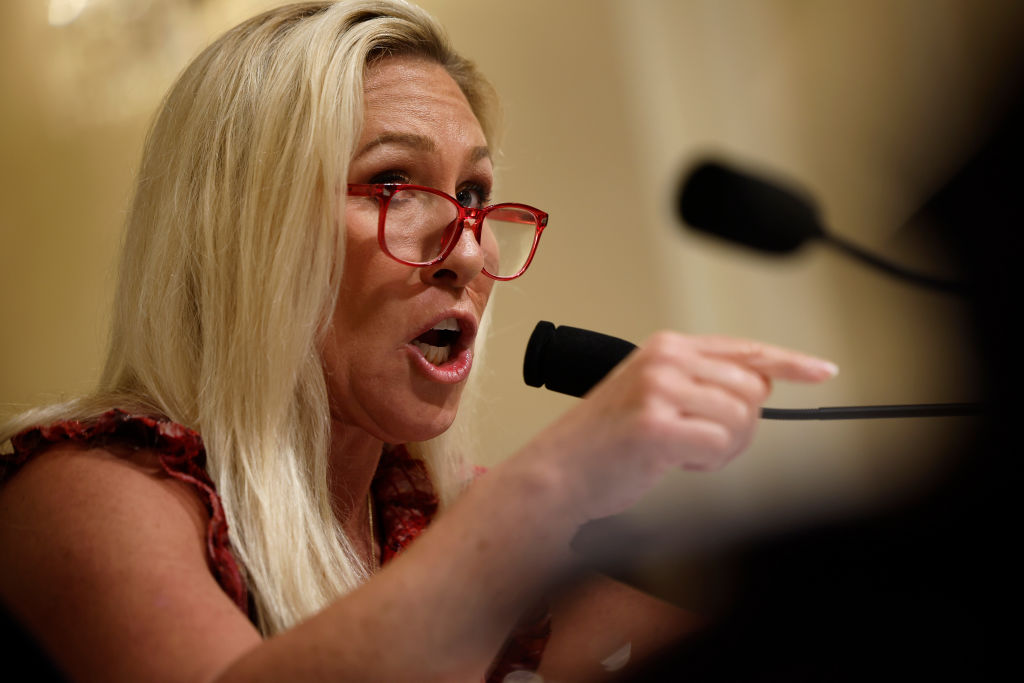TRIPOLI, Libya — Fierce fighting erupted around Moammar Gadhafi’s main military compound in Tripoli on Tuesday, hours after the Libyan leader’s son and heir apparent turned up free to thwart Libyan rebel claims he had been captured and rally supporters.
The surprise appearance of Seif al-Islam energized regime loyalists and underlined the potential for Gadhafi, whose whereabouts remain unknown, to strike back even as his grip on power seemed to be slipping fast.
Street battles between pro-Gadhafi troops and rebels were reported in several parts of the city, and the mood turned from one of euphoria to confusion and fear a day after opposition fighters swept into the capital with relative ease, claiming to have most of it under their control.
Thick clouds of gray and white smoke filled the Tripoli sky as heavy gunfire and explosions shook several districts of the city of 2 million people.
NATO warned the situation in Tripoli remains very dangerous and promised the alliance will continue bombing forces loyal to the 69-year-old Libyan leader if they keep fighting.
“Snipers, shelling, missiles could do much damage, but they can’t change the course of history or the outcome of this campaign,” spokesman Col. Roland Lavoie told reporters at a news conference in Naples, Italy.
Some of the heaviest fighting was around Gadhafi’s Bab al-Aziziya main compound and military barracks, with both sides battling it out with heavy machine-guns, mortars and anti-aircraft guns. The sprawling complex, heavily damaged by NATO airstrikes, emerged as one of the centers of government resistance since tanks rolled out Monday and fired at rebels trying to get in.
Associated Press reporters at the scene said the two sides were positioned across either end of an empty field outside the complex on Tuesday.
The standoff occurred after Seif al-Islam, with a full beard and wearing an olive-green T-shirt and camouflage trousers, took a group of foreign journalists to the area as part of a tour aimed at showing the regime still has support. At Bab al-Aziziya, at least a hundred men were waiting in lines for guns being distributed to volunteers to defend the regime. Seif al-Islam shook hands with supporters, beaming and flashing the “V” for victory sign.
“We are here. This is our country. This is our people, and we live here, and we die here,” he told AP Television News. “And we are going to win, because the people are with us. That’s why were are going to win. Look at them – look at them, in the streets, everywhere!”
It was not clear whether Gadhafi’s son, who turned up at the Rixos hotel, where about 30 foreign journalists have been staying under the close watch of regime minders, had escaped from rebel custody or never been captured in the first place. His arrest was announced on Monday by both the rebels and the Netherlands-based International Criminal Court, which has indicted him and his father.
ICC spokesman Fadi El Abdallah said the court never received official confirmation from Libya’s rebel authorities about the arrest.
The rebel leadership – which had said Seif al-Islam was captured without giving details on where he was held – seemed stunned. A rebel spokesman, Sadeq al-Kabir, had no explanation and could only say, “This could be all lies.”
He also said another captured Gadhafi son, Mohammed, had escaped house arrest. Mustafa Abdel-Jalil, head of the National Transitional Council, announced the detention of a third Gadhafi son, al-Saadi, on Monday.
Riding in a white limousine amid a convoy of armored SUVs, Seif al-Islam took reporters on a drive through parts of the city still under the regime’s control, including Bab al-Aziziya, saying, “We are going to hit the hottest spots in Tripoli.” AP reporters were among the journalists who saw him and went on the tour.
The tour also covered the district around the Rixos hotel and streets full of armed Gadhafi backers, controlled by roadblocks, and into the Gadhafi stronghold neighborhood Bu Slim.
When asked about the ICC’s claim that he was arrested by rebels, he told reporters: “The ICC can go to hell,” and added “We are going to break the backbone of the rebels.”
Rebels said Monday that they controlled most of Tripoli, but they faced pockets of fierce resistance from regime loyalists firing mortars and anti-aircraft guns. Rebel spokesman Mohammed Abdel-Rahman, who was in Tripoli, said the “danger is still there” as long as the longtime Libyan leader remains on the run.
He warned that pro-Gadhafi brigades are positioned on Tripoli’s outskirts and could “be in the middle of the city in half an hour.”
An hourlong battle also erupted close to the Rixos Hotel on Tuesday morning, according to AP reporters staying there. The hotel and the area around it are under tight regime control, with scores of heavily armed soldiers stationed just outside it.
A new bout of fighting around the Rixos took place in the afternoon, with the AP reporters saying the sound of explosions and heavy machine-gun fire was much closer than during the morning fighting. A few stray bullets hit the hotel, they said.
It was not immediately clear whether the rebel attack was aimed at capturing the hotel.
The rebels have claimed control of much of the rest of the country outside Tripoli, and the city of Sirte, Gadhafi’s hometown to the east of Tripoli, was the most important loyalist bastion to remain fully under his control.
Gadhafi’s forces fired off a short-range Scud missile Monday near Sirte – the second one fired during the six-month civil war. On Aug. 15, Libyan government forces launched one near Sirte that landed in the desert outside Brega, injuring no one.
A representative from Sirte on the rebels’ National Transitional Council told the AP on Tuesday that the situation in the city was extremely volatile because Gadhafi brigades had retreated to the city after fleeing the Brega oil terminal.
“There is no power in Sirte, we are getting in touch with the people inside only through satellite phones ,” Hassan al-Daroui told the Associated Press in Benghazi.
He said that many people in Sirte had not even heard about the rebel advance into Tripoli and residents had told him that there were heavily guarded checkpoints all over the city and people were too scared to leave their homes.
“We are worried that Gadhafi wants to just kill as many people as he can before his demise,” al-Daroui said. “He knows he is finished, now he wants to bring Sirte down with him.”
The International Organization for Migration, meanwhile, said that a rescue mission to pluck 300 foreign nationals from the Libyan capital has been delayed by fighting. The Geneva-based group says an IOM-chartered ship will remain off the coast of Tripoli “until security conditions have improved and the safety of staff and migrants can be guaranteed.”
RELATED:
















